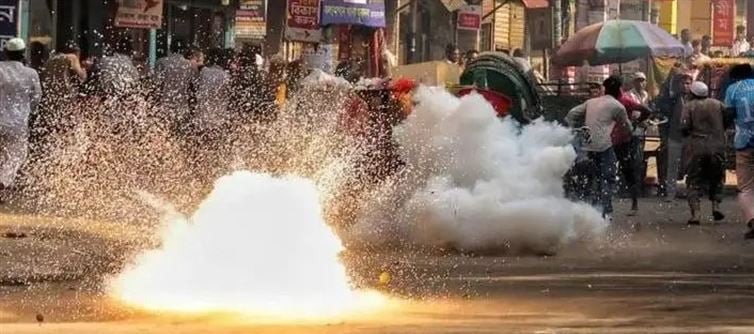
- In the morning light of Dhaka, tear gas still lingers, batons crack on pavements, and crowds chant beneath flickering streetlamps. A verdict has dropped that no one imagined ten years ago: a former prime minister, Sheikh Hasina, has been sentenced to death in absentia for crimes against humanity. But this is less a story of one woman’s fall than a country’s convulsion — the violent uprooting of power, the rewriting of history, and the question: when the rulers become the judged, who will rule tomorrow?
🔍 Four Scary Truths About What’s Going On
1️⃣ The Verdict That Shook the Seat
Bangladesh’s special tribunal found Hasina guilty of “crimes against humanity” over a student-led uprising in 2024, including charges of ordering drones and lethal force against civilians—the sentence: death in absentia.
This is not just a legal outcome — it’s a seismic shift in what power looks like in Bangladesh.
2️⃣ Protests, Repression, and Rapid Aftershocks
When the verdict landed, the streets erupted—reports of clashes, bombs, shootings, deaths.
The interim government, led by Muhammad Yunus, is calling the verdict a necessary restoration of law. His opponents say it is revenge. This battle is now both physical and symbolic.
3️⃣ Exile, Extradition and Diplomatic Fault-Lines
Hasina remains outside Bangladesh. The Dhaka government is demanding her handover. India, meanwhile, says it “notes the verdict” and remains committed to the people of bangladesh, but remains non-committal on extradition.
Which means: this is no longer just Bangladesh’s internal headache — it’s a regional ripple.
4️⃣ Justice or Politics? The Debate That Won’t Quit
Human rights watchers say the tribunal and its proceedings may lack the safeguards of a fair trial, especially given the speed and context. On the other side, the interim regime says “nobody is above the law.”
The question now: when justice moves faster than institutions can cope — is it still justice?
🧨 Final Mic-Drop
Bangladesh’s moment isn’t just about one person’s fate.
It’s about what happens when a government falls, when the people rise, and the court becomes a battlefield.
When rules bend, penalties escalate, and exile becomes protection.
If the verdict is historic, the aftermath will be transformative.
Watch bangladesh — not because you care about one leader, but because you care about what power becomes when nobody is watching.




 click and follow Indiaherald WhatsApp channel
click and follow Indiaherald WhatsApp channel